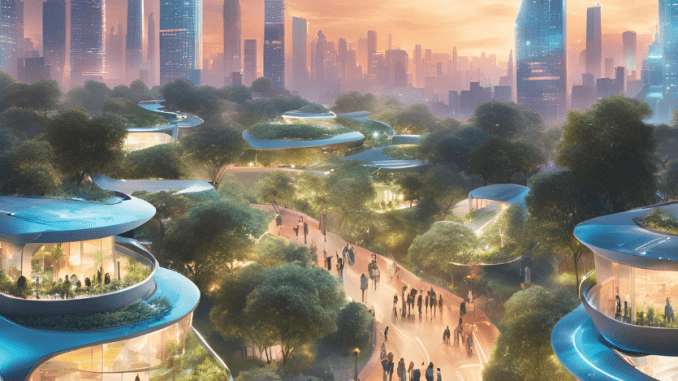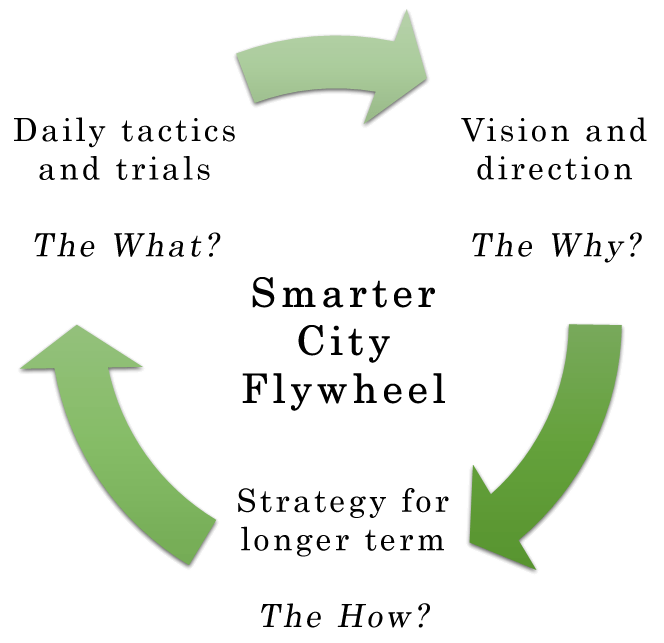
Mobilized spent some quality time speaking with Fanni Melles, the Host of the “What is the Future For Cities Podcast.“
Mobilized: From your unique vantage point, do you witness the pivotal role of community leaders in shaping the future of their cities, enhancing urban experiences, and fostering a sense of belonging?
Fanni: Well, it is a yes-and-no answer. There are great examples where the decision-makers try to achieve magnificent things for the community and the city, but this is not the general approach. A good example for a collaborative approach is Amsterdam. This city constantly develops its future vision with its community based on urban experiments, or Christchurch, where the Smart Christchurch is the R&D department of the Christchurch City Council, trialing specific solutions before broader adoption. On the other hand, questionable solutions jeopardize the community’s future and urban resources.
What are the biggest obstacles to rolling this out?
Some of the obstacles are the need for the understanding that a city needs to evolve with us humans – that is why I talk about more innovative approaches. This means there is always room for improvement, there is always a next step, and our approach can be more innovative first (then we can turn to the environment to make it brighter).
This also brings in the understanding that without more intelligent people, there is no more innovative approach. The urban vision needs to involve the community because if they are not part of it, they will not participate – sometimes even actively harming efforts and sowing discord (not maliciously but inadvertently).
What are the first steps in planning a smarter city?
I aim to find a long-term vision to guide short-term strategies, trials, and experiments. The vision could/should be over the 50-year horizon, flexible enough to allow evolution to happen in the different fields, and understood by the stakeholders (and it does not matter what the name is as long as the involved parties agree on the meaning).
People need to be involved in this vision creation – that creates individual ownership and responsibility, allowing grass-roots movements to start alongside the top-down approaches. With this vision, strategies, and tactics can be implemented, always informing each other and creating a self-reinforcing feedback loop – the Smarter City Flywheel.

What are some of the mistakes you have seen?
- A Smart city is usually associated with technology or a technologically advanced city. Technology does not matter without people using it. So, technology needs to be the aim to create better futures through smarter approaches.
- There is resistance to the continuous evolution piece. However, if a city stops evolving, it will die because we humans evolve, and if a place does not serve our needs, we will abandon it and find a better one (hopefully).
Remembering that what works in one place may not work in another is crucial. Each urban area is unique, and solutions must be tailored and translated to fit the specific needs and characteristics of the region and city. Never underestimate the power of people’s input. Cities are ultimately for the people; their thoughts, experiences, challenges, and opportunities are invaluable in shaping the urban landscape. We can influence our environment and the decisions that shape our future.
Can you provide some examples to “newbies” who want to know how to improve the quality of life where they are now?
I recommend starting with your environment (apartment, building, street, metro station, office, etc.):
- What does work?
- What infuriates you?
- What do you especially like?
Talk with people about it and let the owners or decision-makers know. If we are conscious of our environment and what works and what doesn’t, we can change for the present and start consciously influencing the future.
There have been campaigns against 4G, 5G–etc. What is the reality of this situation?
If I want to be straightforward, they are fear-mongering campaigns for me, but that is my opinion, as I am not familiar with all the campaigns. However, no urban futures are here to make our lives worse – the same with technology. It is not the urban future idea (or technology) that is bad or threatening, but how people (we and our decision-makers) utilize them. So, we return to the piece on our influence: we can ask for better solutions.
(On the other hand, I encourage everyone not to play expert in fields they are not expert in. Some have spent years understanding how to solve a specific problem; we need to provide them with the challenge and let them find the most appropriate solution.
In urban design/planning and architectural terms, that means that the designer/planner needs to investigate the original brief and find the root causes to provide the client with the best spatial solution – although for that to happen, they also need the allowance from the client to happen. This requires trust in experts, which might be lost, but that is another separate issue.)
In closing, what new possibilities can you discuss that could inspire ethical community leaders?
Don’t be afraid to start something to improve your environment. Governments are playing catch-up with the latest solutions (as they should), so we shouldn’t wait for them to provide the best solutions. We must create a better future—not easy, but challenging. Still, if the responsibility is on us, then not just the challenges but the opportunities are ours to grasp. Technology, which can be understood as applied knowledge, is part of the better future, but it is a tool, not the aim. We need to utilise technology for conscious evolution, but at the same time we also need to focus and broadcast its benefits instead of being sidetracked by its newness.
Some of What is the Future for Cities Podcast, hosted by Fanni Melles:
- WTF ep 003 – Interview with Frans-Anton Vermast, International Smart City Ambassador at Amsterdam Smart City, about their program and approaches
- WTF ep 120 – Interview with Matt Ferrell, Youtube creator specialising in renewable energy, about renewable technologies and hope
- WTF ep 165 – Interview with Michael Healy, Innovation and Improvement Manager at Christchurch City Council, about how smart city is the R&D department for the council
- WTF ep 274 – Interview with Richard Gill, CEO of RethinkX, about change
- Smart city? Smarter City! – Youtube video by Fanni Melles, PhD
